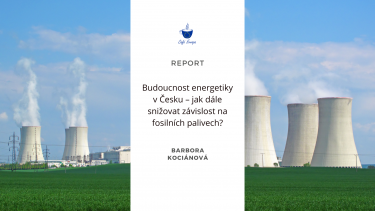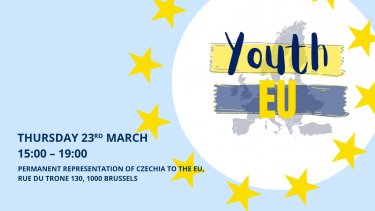REPORT | What future for QMV in Foreign and Security Policy?
The debate focused on the possible move to qualified majority voting in the EU's Foreign and Security Policy. The participants in the debate discussed the possible negative and positive aspects of the decision. The debate covered topics such as the fear of over-voting as a possible aspect of division within the Union or the ineffectiveness of the current consensus approach.
Show moreBLOG | Does Türkiye play well-calculated chess moves on the Western board?
Nilsu Eledağ has written a blog about Türkiye's role in determining Sweden's NATO membership and concerns about terrorism and anti-Islamist movements. Türkiye took a slight turn in foreign policy and now plays a closer game with NATO allies. There could be two reasons behind why Türkiye chose to shift towards the West. Find out more in Eledağs blog.
Show moreČRo Plus: What outlook does North Macedonia have for joining the European Union?
Czech president Petr Pavel welcomed the President of North Macedonia, Steve Pendarovski, at Prague Castle. According to the Castle, the invitation to the Czech Republic is intended to express the support for the country's move towards the European Union. For Český Rozhlas Plus, the head of our Brussels office, Žiga Faktor, commented on the current events in North Macedonia.
Show more
E15: EU emission standards will not be enough for China. Beijing is preparing its own rules
The EU countries have decided that the sale of new cars with internal combustion engines will end by 2035 at the latest. Although this is a highly controversial move in the Czech Republic, it is unlikely to be of much significance in the context of the global new car market. The new Euro 7 emissions standard will be the same. Our Senior Research Fellow Vít Havelka commented on this topic.
Show more
REPORT | Café Evropa: The future of energy in the Czech Republic - how to further reduce dependence on fossil fuels?
As part of the Café Evropa debate series, a debate was held on the topic The future of energy in the Czech Republic - how to further reduce dependence on fossil fuels? Is the Czech Republic succeeding in diversifying its resources and reducing its dependence on fossil fuels? Will the Czech Republic be energy independent from other countries if it moves away from coal? You can read a summary of the outputs of each guest in the report written by our intern Barbora Kociánová.
Show moreNational Convention on the EU | Background material: The European Political Community and its future potential
Our Senior Research Fellow Jana Juzová, Associate Research Fellow Zuzana Kasáková and Head of the Brussels Office Žiga Faktor prepared the background material for the roundtable of the National Convention on the EU. The topic is "The European Political Community and its future potential". Three main questions are put to the roundtable: What potential does the European Political Community offer and how can it complement existing platforms and processes? In which areas of cooperation does the platform have the greatest potential and what should it focus on? What format and modus operandi would be most beneficial for the Platform to fulfil its purpose?
Show more

Third year | Decarbonisation of the Czech automotive industry
The climate team of EUROPEUM is currently delivering the 3rd year of its project focused on the decarbonisation of the automotive industry in the Czech Republic. We want to build upon our experience and move this work forward with a more targeted approach. We will focus on three main areas, which we have identified as crucial parts of the puzzle for transitioning to cleaner modes of transport.
Show more

INVITATION | YouthEU: Challenging Euroscepticism Through Educating and Empowering Youth as European Citizens
We would like to invite you to a YouthEU conference on "Challenging Euroscepticism Through Educating and Empowering Youth as European Citizens". The conference will take place on Thursday 23rd of March at 15:00 at the Permanent Representation of Czechia to the EU in Brussels.
Show morePOLICY PAPER | Demand the impossible: How Ukraine became a candidate for EU membership
Tomasz Żornaczuk writes that Russia's aggression in Ukraine has led to major changes in EU enlargement in 2022. The most significant of these was the change in the Union's geographical position after Ukraine and Moldova were granted EU candidate status and Georgia was granted the prospect of accession. The move seemed almost impossible a few weeks before it became the new political reality in June 2022.
Show moreiROZHLAS: Suspension of the Erasmus programme for Hungary? "Punishment and isolation of students."
Hungarian students from 21 universities are at risk of not being able to participate in the Erasmus+ education programme. The European Commission has temporarily cut them off. "The students who stand to lose the most from Erasmus are not the children of upper-middle-class parents, but those from smaller towns and rural areas. They don't have the means to travel abroad," Hungarist Oszkár Roginer, Global EU project manager at the EUROPEUM Institute, criticised the decision to iROZHLAS.cz.
Show more
Staroměstské náměstí 4/1
Prague 1 - Staré Město
110 00
tel.: +420 212 246 552
email: europeum@europeum.org
https://www.europeum.org









